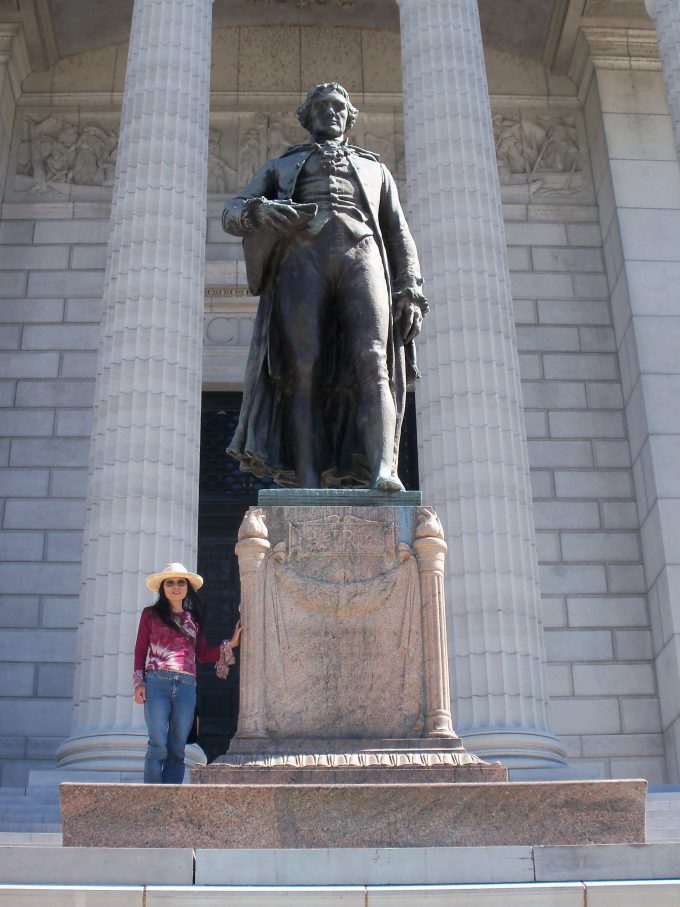
Friday, 24 November 2017
For there is one God and one Mediator between God and men, the Man Christ Jesus, 1 Timothy 2:5
Wow! So much for prayers to Mary or the saints. So much for a separate and elevated priestly class within the church! So much for a pope exalted upon his stool! Such notions not only rob Christ of His authority and position, they are idolatry – granting to the created that which belongs to the Creator alone.
Paul begins with “For.” The words to come are based upon that which has been written. He just said that God “desires all men to be saved and to come to the knowledge of the truth.” This is what the “for” is alluding to. Because this applies to all men, and because God desires their salvation, a way has been opened for this to occur, but it is an extremely limited way – a narrow path. It is through the giving of His Son. To set the stage for this, he says, “For there is one God.” This truth eliminates all religions on earth except those which are monotheistic. But he is not finished. This is the first necessary qualifier.
Any religion which does not accept the premise of there being one God is noted as false. Further, as there is one God, then “all men” of the earlier verse are accountable to this one God. Understanding this, Paul then further refines the matter by saying, “and one Mediator between God and men.” That there is a God is established, but that mediation between God and men is also necessary is now established as well. We cannot go directly to God, but we must go through a mediator. But more to the point, we must go through one Mediator. Paul has limited the truth of who God is to one narrow path. Any path which is followed apart from this one path is a false path, and thus it is a false religion which is incapable of finding peace and harmony with God. And next, Paul clearly and completely defines which path that is by saying that the one Mediator between God and man is “the Man Christ Jesus.”
As closed, limiting, politically incorrect, and intolerant as it might seem, this is what Paul shows us defines true religion – the Christian faith. But even some who claim the title are excluded. Refer to those (and those like them) who attempt to go to God through other “mediators” in the first paragraph. They have no Mediator, and they are excluded from His mediation. They have cut themselves off from God by refusing God’s appointed Mediator. A church cannot save, and the mediators chosen by a church are incapable of filling the role assigned by the church. Mediation comes solely through Jesus Christ who Paul highlights as “the Man.”
This is the only time Paul uses this phrase, but he chooses this point in his letters to do so for a reason. He is highlighting the humanity of Christ in order to refute the doctrine of Docetism which was already creeping into the church. This teaches that Christ’s body was not human, but rather it was some type of phantasm. Or, if real substance, that His sufferings were not actual but only apparent. Paul will refute this in the coming verse, but his highlighting of Christ’s manhood is a theological necessity. God is infinite, we are finite. Because of our sin, without a human Mediator, we are infinitely fallen. Christ Jesus came into the world to live perfectly and then offer that perfect life for those He came to save. Without the stain of sin, He could pay our sin debt, and then He could become our acceptable Mediator between God and men.
In His divine nature, He can mediate to His infinite Father, and in His human nature, He can do so for finite beings. The Bridge is restored; the path is made; restoration with God is possible. Believers can intercede only by means petition, praise, and giving thanks as an expression of good will towards others, but Christ Jesus intercedes for others because He has merited what He asks for on our behalf. The difference is infinite in scope and in acceptability. The author of Hebrews explains both scope and acceptability in one verse –
“And for this reason He is the Mediator of the new covenant, by means of death, for the redemption of the transgressions under the first covenant, that those who are called may receive the promise of the eternal inheritance.” Hebrews 9:15
The scope is “the eternal inheritance,” and the acceptability is “by means of death.” Jesus Christ is both capable and qualified to mediate for those who are His.
Life application: For mediation between yourself and God, you need Jesus. If you are reading this today, and believe that God hears your prayers apart from Jesus Christ, you are mistaken. But even Christ cannot mediate for you unless you come to Him by faith. The Bible gives the gospel message by saying, “that Christ died for our sins according to the Scriptures, and that He was buried, and that He rose again the third day according to the Scriptures” (1 Corinthians 15:3, 4). It then tells how to appropriate that by saying, “that if you confess with your mouth the Lord Jesus and believe in your heart that God has raised Him from the dead, you will be saved.” Until you, by faith, receive Jesus Christ – meaning His work on your behalf – you stand condemned before God, having no Mediator. Call on Christ today, and be reconciled, completely and eternally, to the God who loves you enough to make this one, narrow, path available.
Lord God, Your word tells us that there is one God and one Mediator between God and men, the Man Christ Jesus. If that is so, then it is very limiting indeed. It means that no other religious expression is acceptable to restore us to You. Hear our prayer for those who are not yet included in this offer of peace – that their eyes would be opened, that their hearts would be softened, and that their souls would be saved – through the shed blood, death, burial, and resurrection of Christ Jesus the Lord. May it be so. Amen.




